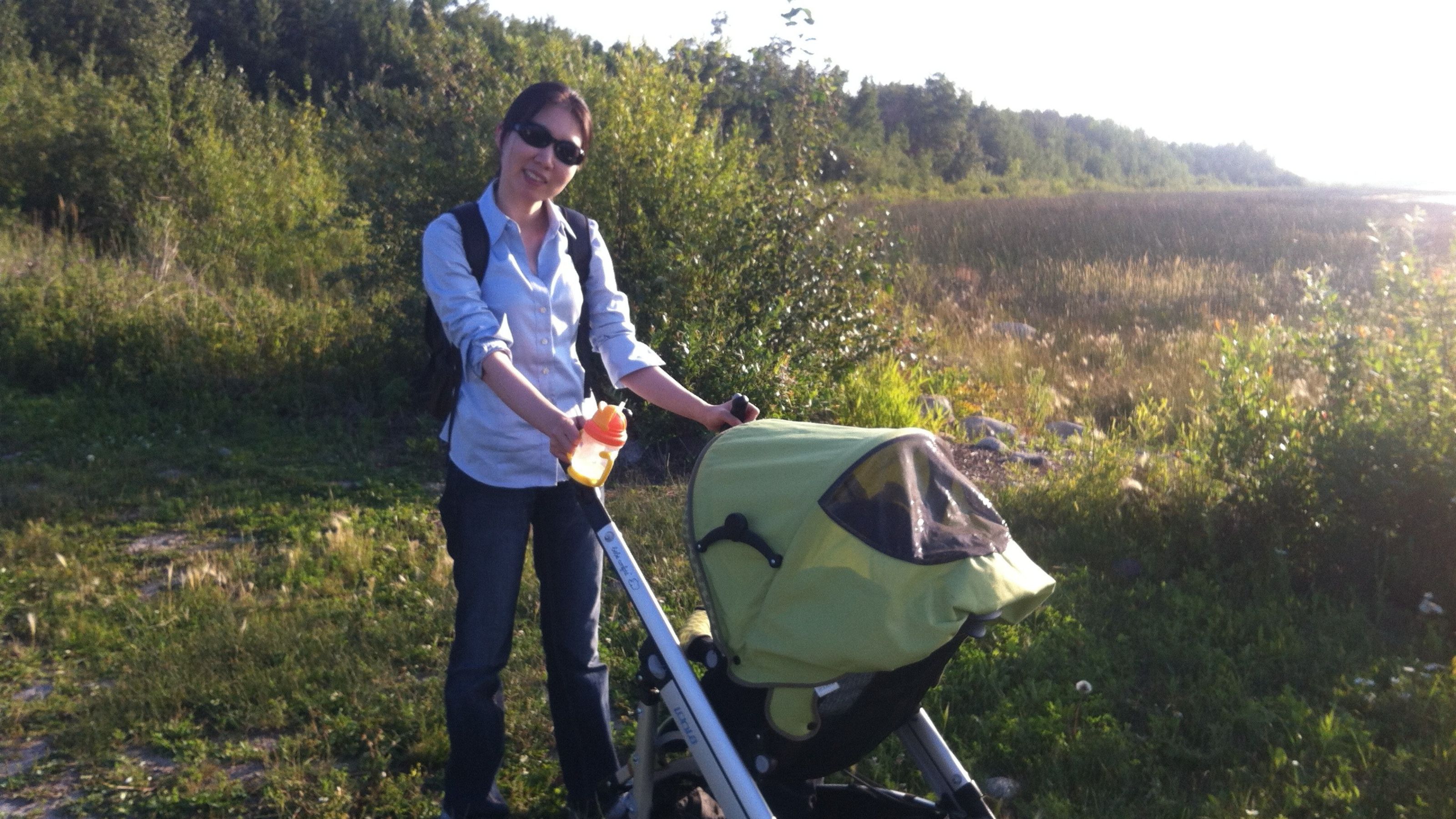Mi-Young Kim, an assistant professor in the Department of Science at the Augustana Campus, shares how innovative research can mesh both traditional and novel methods to create optimal solutions to challenges and why gathering knowledge through the diverse perspective of others can further inspire researchers to explore and incorporate diverse considerations into their research.
In this week’s spotlight, Mi-Young shares why learning to let go of initial frustrations and approaching feedback with a constructive lens can create greater opportunities to improve research.
How do you describe your work to people who don’t work in your field?
I would describe my work as making machines understand human languages, which is called natural language processing (NLP). NLP is a part of Artificial Intelligence (AI). NLP and AI techniques can provide a variety of useful tools in people’s lives. Some examples: my work saves legal professionals’ time in searching precedents relevant to a new case law and my work can also create a machine that performs automated health assessments of a patient after hearing the patient’s symptoms and concerns.
What’s one big problem you want to solve through your work?
One big problem that I want to solve (or contribute to solving) is the data bias issue. The outcomes AI machines produce are based on training data. Training data created by humans can include a person’s conscious/unconscious biases. If data includes any bias, then the outcome derived by the AI machine that uses that data will be biased, too. In using the principles of Explainable AI, we can see how an AI machine arrived at a certain prediction. Through this explanation, we can further identify any bias in that data and the immediate and future impacts this may have on all of us.
What does the word “innovation” mean to you?
To me, “innovation” means not being afraid to use traditional methods/ideas, while also acknowledging the new ideas and fresh perspectives one can have in creating optimal solutions to challenges/problems. I believe innovation starts from tradition and that by adding new insights or different points of view, these traditional ideas and/or methods can be turned into an innovative solution that can positively address and impact our every day.
What’s been your biggest a-ha moment — in life or work — so far?
There is no need to get frustrated by the feedback I receive about the research I conduct. As a researcher, I might go through periods where my research work is rejected by publishers for a number of reasons prior to a publication contract. Experiencing rejection and critique, whether new or a seasoned researcher, can feel personal, hurtful and frustrating — especially after investing so much time and energy into it. There are often diverse takes on research, sometimes mixed or opposing. That’s okay. Knowing this and learning to assess feedback with a constructive lens helps me to let go of the initial frustrations I may feel and allows me to create greater opportunities to improve my research.
How do you come up with your best ideas? What do you do to create space for innovation?
I read a book about humanities that has nothing to do with my research. Even though my research field is (computing) science, it is still about people (e.g., how computing science benefits our lives and how we can better understand and communicate with each other through computing science techniques). Personally, I think accessing and using knowledge from the humanities can be a strong basis for providing the best ideas in science research.
What’s your favourite thing about working at the U of A?
I am working at the Augustana campus, which is a liberal arts and sciences campus. I enjoy working with colleagues here who are from other educational backgrounds, such as humanities, arts and social sciences. Working alongside these individuals connects me to different ideas and thoughts from different perspectives. These different insights inspire me and the research I conduct.
What’s next for you? Do you have any new projects on the horizon?
I am currently in collaboration with colleagues in the Faculty of Medicine and Dentistry, so I expect new projects on the horizon with AI in medicine.

About Mi-Young
Dr. Mi-Young Kim is currently an Assistant Professor in Computing Science, Augustana Faculty, University of Alberta. Her research interests are in Natural Language Processing, Artificial Intelligence, and Machine Learning. Currently, she is researching information extraction from two specific domains: medical and legal domains. Since 2014, she has been serving as a co-organizer of the International Competition on Legal Information Extraction and Entailment (COLIEE). In the annual international competition of the legal bar exam question answering, her team’s legal AI assistant had been ranked No.1 from 2014 to 2019. She is also interested in Explainable AI, and currently developing an AI system that can perform automated health assessment for a patient, and provide rationale(explanation) on the prediction. In addition, she is analyzing Alberta radiology reports in order to extract information about inflammatory bowel disease and explain it.
This conversation has been edited for brevity and clarity.
Innovator Spotlight is a series that introduces you to a faculty or staff member whose big ideas are making a big difference.
Do you know someone who’s breaking boundaries at the U of A? (Maybe it’s you!) We’re interested in hearing from people who are creating new solutions to make our world better. We want to feature people working across all disciplines, whether they’re championing bold ways of thinking, driving discovery or translating insights from the lab into the market.
Get in touch at blog@ualberta.ca.
